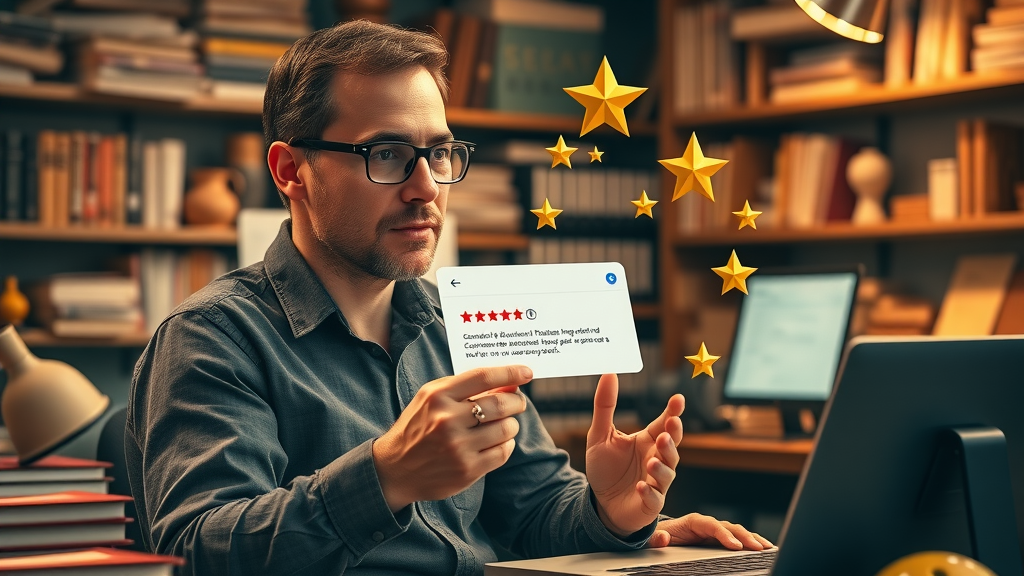Did you know? Nearly 78% of local mobile searches result in an offline purchase—a staggering statistic that reveals just how powerful SEO for local businesses can be. If you’re a small business owner eager to grow, mastering local SEO isn’t just smart—it’s vital for your survival in today’s competitive landscape. This guide explores actionable methods that turn your online presence into more foot traffic, calls, and sales—fast.
Did You Know? Why SEO for Local Businesses Delivers Results Others Miss
Local SEO puts your business in front of customers who are already searching for products or services like yours in their neighborhood. While national and global SEO strategies focus on wide audiences, SEO for local businesses zeroes in on users who are ready to buy and close to your location. Thanks to the rise of “near me” searches and Google Maps integrations, local search has evolved into one of the most direct methods to boost business revenue. When a consumer looks for a local business on their phone, they’re often searching with intent—and ready to make a purchase that day.
Search engines favor businesses that optimize their Google Business Profile, use location-specific local keywords , and respond to reviews promptly. These strategies help local businesses stand out in crowded marketplaces and win over customers who may never have otherwise discovered them. Unlike traditional marketing, the ROI from smart local SEO compounds over time, driving more organic visits, leads, and store traffic as your optimizations take hold.

“Nearly 78% of local mobile searches result in an offline purchase.” — Google Consumer Insights
What You’ll Gain from Mastering SEO for Local Businesses
Understand SEO for local businesses fundamentals and its impact on growth
Unlock proven strategies to dominate local ranking in search engines
Build and optimize your Google Business Profile for conversions
Identify ranking factors that matter to local SEO
Craft a sustainable SEO strategy with effective local keyword research
Leverage tools designed for small business and local SEO
Set up social media and local business link-building for trust
Track progress, ROI, and troubleshoot for scalable results
SEO for Local Businesses: A Roadmap for Small Business Success
Optimizing local SEO is essential for any small business aiming for rapid and sustainable visibility in their community. Building a local SEO roadmap means understanding both the strategic “big picture” and the hands-on steps that lead to steady local ranking improvements. From claiming your Google Business Profile to ensuring accurate business information online, every element plays a key role in elevating your brand’s presence.
An effective roadmap includes setting clear goals—such as increasing Google Maps engagement, driving phone calls directly from search results, and improving Google Business Profile actions. By sequencing tasks such as content creation, keyword research, and citation building, you can create a scalable blueprint that aligns with your growth ambitions. The roadmap for small businesses isn’t a one-size-fits-all solution; it’s about customizing rankings approaches so you consistently outpace competitors in the local pack and search results.

Local SEO Explained: What Makes SEO for Local Businesses Unique
“Local businesses live or die by their local search engine visibility.” — SEO Industry Report
Definition: SEO for local businesses refers to a set of optimization practices that help small businesses appear prominently in local search results and Google Maps, driving real-world traffic and phone calls.
Unlike national companies, small businesses and local business face unique hurdles: limited marketing budgets, less website authority, and fierce competition for nearby customers. Yet, they benefit from being physically close to the searcher, making local intent a valuable asset in online discovery.
The differences between local SEO and traditional SEO come down to focus—local SEO emphasizes proximity, Google map integrations, and local keywords, while traditional SEO targets broad audiences and high-volume generic keywords. Local SEO also measures actions like direction requests, calls, and store visits rather than just website clicks.
By focusing on local business challenges around consistency in business information and building trusted citations, local SEO strategies are customized to win the local ranking battle. Also, leveraging social media platforms to engage with the nearby audience is key for authentic relationships, which push search engines to reward trustworthy small businesses.
The Local Ranking Puzzle: Which Factors Matter for Local Businesses

Understanding the puzzle of local ranking factors is crucial to optimizing SEO for local businesses. Google’s algorithm takes various signals into consideration—many of which differ from those that drive national ranking. The impact of a fully optimized Google Business Profile, consistent NAP (Name, Address, Phone Number) listings, and effective review management cannot be overstated.
For most small businesses, the interplay between local keywords , on-page SEO (including schema and metadata), and backlinks from other reputable local sites establishes strong authority in the local search ecosystem. Local signals like user proximity, review sentiment, and business categories in Google Maps also play a major role, influencing both the Google Maps pack and overall organic search rankings. By zeroing in on these factors, business owners can address the most critical areas for rapid ranking improvements.
Ranking Factor |
Impact on Local SEO |
How to Optimize |
|---|---|---|
Google Business Profile |
Highest |
Claim and fully optimize |
Local Keywords |
High |
Research and locally optimize on-page |
Reviews |
High |
Standardize and reply promptly |
Citations and Directory Listings |
Medium |
Ensure NAP consistency |
On-Page SEO |
Medium |
Title, descriptions, schema |
Backlinks |
Medium |
Local partnerships, sponsorships |
Social Signals |
Low |
Active engagement on social media |
Optimizing Your Google Business Profile: The Heart of Local SEO for Local Businesses
How to claim and verify your Google Business Profile
Key fields to optimize for better local ranking
Leveraging new profile features: posts, reviews, Q&A
Maintaining accuracy for small business and local business details
Using Google Maps integration for increased findability
Your Google Business Profile is not just your digital storefront—it’s the engine driving trust and conversions in the local search landscape. To get started, every business owner should claim and verify their profile through Google’s official process. This ensures you’re the recognized point of contact and allows you to update essential details.
Optimizing your profile involves more than setting up basic business information —it requires filling out every field, accurately categorizing your business, adding appealing images, and regularly using Google Posts to share updates. Features like review requests, question-and-answer sections, and integration with Google Maps all increase your visibility. Ensuring the business name, address, and phone number are consistent across online platforms (“NAP consistency”) is a fundamental step in building both search engine and consumer trust.

Best Practices for Managing Your Google Business Profile
Images: Choose professional, inviting photos and update them seasonally to exhibit authenticity and build instant trust. Showcase your team, products, and store inside and out.
Responding to reviews: Make it routine to thank every customer and address concerns publicly. Search engines consider review frequency and owner response as ranking factors.
Consistency: Keep business hours, contact details, and descriptions identical across all online directories, citations, and your main website. Inconsistencies can dilute your local SEO efforts and confuse both search engines and customers.
By routinely optimizing and actively managing your business profile , you send the strongest possible signals to Google Search and Google Maps, quickly boosting your local ranking and customer engagement. These best practices also provide measurable wins in the vital local pack section of search results.
How to Build a Powerful Local SEO Strategy for Small Business

Local keyword research: Identify high-intent local keywords your nearby audience uses, utilizing tools like Google Keyword Planner and Moz Local to find what matters most.
SEO tools: Use proven SEO tools—including Google Business Profile Insights, Moz Local, and SEMrush—to streamline your ranking and content optimization processes.
On-page SEO: Focus on optimizing title tags, meta descriptions, and schema markup to amplify your local search visibility in Google Search and Google Maps.
Content creation: Develop blog posts, guides, and landing pages that answer real customer questions and showcase your expertise in the community, making sure to weave in local keywords naturally.
Backlink building: Partner with other credible local businesses, sponsor community events, and earn mentions in local news to bolster your backlink profile and authority.
Crafting a strong local SEO strategy for your small business means taking a multi-layered approach: uncovering hidden opportunities with advanced keyword research , optimizing every page for local relevance, and building relationships that foster authentic backlinks. When you implement a data-driven local SEO strategy, your business will rise in local search results, capture a loyal customer base, and thrive even amid fierce competition.
Local Keywords and Local Search: How to Target and Win
Conducting local keyword research for SEO for local businesses
Implementing keywords in business profile, website, and Google Business
Avoiding keyword stuffing while improving local ranking
Effective local keyword research uncovers the exact search phrases your target audience uses when looking for services or products nearby. Start by entering simple queries like “best coffee shop near me” or “[your service] + [your city]” into Google and analyze the top suggestions. Leverage tools like Google Keyword Planner, SEMrush, and Moz Local to find even more location-specific keywords, and review what competitors use in their own business profiles.
Once you have your list, integrate these local keywords seamlessly into your business profile , service pages, blog posts, and page SEO elements like headings and meta descriptions. Remember: it’s important not to “stuff” keywords. Instead, use them naturally in context to build trust with both customers and search engines, ensuring your business isn’t penalized for spammy tactics. Consistently optimizing for local search intent gives your small business an edge in both Google Search and the Google Map pack.
Leveraging Social Media for Local SEO and Community Engagement

Choosing platforms where your audience finds local businesses
Aligning social media tactics with your SEO strategy
Integrating Google Search and social presence
Today’s best-performing local SEO strategies seamlessly layer social media marketing with traditional local search tactics. Choose platforms where your neighbors already engage—such as Facebook, Instagram, and Google Business itself—to promote your most compelling stories, special promotions, and events. These platforms make it easy for local customers to share your business info, leave reviews, and tag your location, all of which boost your credibility in local search results.
Aligning your social media posts with timely SEO keywords and links to your current content helps turn casual browsers into loyal customers. Platforms like Google Business Profile even allow you to post updates, which appear directly in search results and Google Maps listings, providing a real-time advantage over less agile competitors. An integrated approach means that both your digital and local community know exactly why your small business stands out from the rest.
Tracking Your Local Ranking Success with Analytics

Setting up and interpreting Google Analytics for local SEO
Tracking conversions and online-to-offline ROI
Using SEO tools and Google Search Console to monitor local ranking factors
Smart business owners know that regular measurement is the cornerstone of SEO for local businesses. Set up Google Analytics to capture all interactions stemming from both your website and Google Business Profile clicks. The analytics reveal how users are finding your business (via Google Maps, search engines, or direct traffic) and which pages drive the most calls, directions, and purchases.
To track online-to-offline ROI, monitor conversion actions such as click-to-call, appointment booking, and local driving directions directly from your Business Profile. Use Google Search Console and SEO tools to monitor your local ranking factors and alert you to sudden dips or traffic losses. Mastering analytics helps you pivot your strategy in real-time and spot areas for future investment or optimization.
Proving Local SEO ROI for Small Business
“Businesses that track local interactions see over 52% more revenue from online outreach.” — Local SEO Benchmark Survey
Defining meaningful KPIs for local businesses
Reporting on Google Business Profile clicks, calls, and website visits
To demonstrate success, focus on Key Performance Indicators (KPIs) specifically relevant to local business : total impressions in the Google Maps pack, phone calls from Google search results, review volume and sentiment, and clicks for directions. Periodically report on these actions—especially those completed directly from your Google Business Profile and social channels. This allows you to prove the tangible impact of your local SEO strategy with hard data, ensuring your investment delivers sustainable returns.
Troubleshooting & Continuous Improvement for SEO for Local Businesses

Resolving local ranking drops and Google Business Profile issues
Ongoing SEO strategy updates in response to industry changes
Soliciting more reviews for improved local business rankings
No local SEO journey is completely smooth—algorithm changes, unexpected review dips, or Google Business Profile issues can all impact your performance. When you notice a drop in local ranking, check for NAP inconsistencies, outdated business info, or missing schema markup. Ensure your profile is live and displaying correctly on both Google Maps and Google Search.
Continuously evolve your local SEO strategy by implementing learnings from analytics, soliciting more 5-star reviews, and keeping up with the latest search engine updates. Regular outreach to satisfied customers encourages authentic feedback, which not only boosts trust but also feeds Google’s ranking algorithm with more positive signals about your local business.
Cost and Value: Investing in SEO for Local Businesses
How much should you pay for local SEO services?
Cost breakdown for DIY and managed SEO
Measuring the value of SEO investment for small business
Investing in SEO for local businesses can be highly affordable—even for small business owners just starting out. Costs typically fall into three buckets: do-it-yourself tools, freelancers, and SEO agencies. Your decision will depend on your budget, the competitiveness of your market, and how much hands-on involvement you prefer.
DIY solutions and subscription SEO tools can cost as little as $50 per month, perfect for startups on a tight budget. Freelancers typically charge $300-$800 monthly, blending expertise with affordability. For growing or multi-location small businesses seeking advanced support and reporting, agencies can range from $800 to $2,500 each month, reflecting deeper strategic oversight and broader service offerings. Evaluating the value of your SEO investment comes down to the measurable local rankings and new customer leads you gain over time.
SEO Service Type |
Avg. Monthly Cost |
Best For |
|---|---|---|
DIY Tools |
$50-$150 |
Startups, budget-limited businesses |
Freelancers |
$300-$800 |
Established small businesses |
Agencies |
$800-$2,500 |
Growing or multi-location businesses |
People Also Ask: Key Questions About SEO for Local Businesses
Is SEO worth it for local businesses?
“Local SEO consistently delivers the highest return on investment for store-front and service-based businesses.” — MOZ Local Study
Consumer intent is strong for local searches—studies show that customers who search for “near me” are ready to buy, driving a high conversion rate.
SEO is a compounding investment: early wins drive more clicks, calls, and leads, leading to ongoing growth and revenue for small businesses.
Absolutely. SEO for local businesses is one of the highest-ROI forms of marketing available. Local searchers routinely turn to Google Maps and local search to find local places to shop, eat, or get services. By ranking higher, you ensure more eyeballs, more visits, and ultimately more sales—increasing over time as you build local trust and authority.
How to do SEO for local businesses?
Step-by-step: claim your Google Business Profile, optimize your website’s page SEO, target relevant local keywords through keyword research, and collect and respond to reviews for trust.
Leverage essential SEO tools like Google Keyword Planner, Google Search Console, and Moz Local, and consistently apply proven local ranking strategies for best results.
Start by claiming and verifying your Google Business Profile , then optimize your page SEO for local search keywords. Next, conduct detailed keyword research with tools like Keyword Planner. Solve for NAP and business info consistency across directories, and actively collect reviews, replying to each one. Implement schema markup and track progress using platforms like Google Analytics and Search Console for a complete feedback loop.
How much should I pay for local SEO?
Expect to pay as little as $50/month for DIY SEO tools, with freelancers charging $300-$800/month, and agencies charging from $800 up to $2,500/month depending on your needs.
Major factors affecting cost: the size of your local market, the competitiveness of your business niche, and your target audience complexity.
Costs for SEO for local businesses can run from a minimal monthly software investment to a more substantial agency commitment. If you’re hands-on, DIY tools are a smart start. If you prefer an expert’s guidance and better reporting, freelancers or agencies may be the right call, with pricing justified by greater local rankings and revenue potential.
Does local SEO still work?
“Local SEO is not only alive but more critical than ever in a mobile-first world.” — Search Engine Land
Recent search engine algorithm updates increasingly favor local businesses in their search results, especially with Google prioritizing locally relevant and mobile-optimized profiles.
‘Near me’ searches and mobile-driven discoveries are at an all-time high—and show no signs of slowing down.
Adaptability and continuous improvement in tactics keep your small business visible and growing, regardless of market changes.
Without question, local SEO is more important than ever. Search engines prioritize local relevance and trust—giving active businesses with optimized profiles a massive edge in stores, service calls, and new customer acquisition. Local search results are dynamic, so a continuous approach is your best guarantee for lasting success.
Expert Insights and Pro Tips for SEO for Local Businesses

Request quotes from several local SEO professionals to compare options and pricing tailored to your business scale and goals.
Avoid three common mistakes: inconsistent business information, neglecting reviews, and ignoring mobile optimization.
Use tools like Google Business Manager, Moz Local, and Google Analytics to streamline your process and gain instant performance insights.
Partnering with a knowledgeable SEO tool provider or consultant can help keep your local SEO on track. Always keep your business info updated, encourage and respond to every review, and don’t neglect the power of mobile-friendly website design for local search. Invest in the right tools and relationships to future-proof your success.
The Fast Track: Quick Wins in SEO for Local Businesses
Complete and optimize your Google Business Profile today
Solicit and respond to customer reviews weekly
Apply local keywords to all core website content
Verify and update NAP citations in main directories
Leverage local backlinks through community partnerships
Monitor Google Maps and search analytics monthly
These steps can yield immediate improvements in your local rankings and discoverability. Taking action on even a few of these quick wins will put your small business ahead of the competition and set the stage for lasting growth.
Frequently Asked Questions About SEO for Local Businesses
How soon can small businesses expect results from local SEO? Improvements in local ranking can often be seen within 30-90 days, especially after optimizing your Google Business Profile, collecting reviews, and updating key citations.
Is Google Business Profile enough for ranking, or do I need a website? While a fully optimized Business Profile is vital, a dedicated website built for on-page SEO and rich content will amplify your local SEO impact and credibility with search engines.
What is the difference between Google Maps and Google Business Profile optimization? Google Business Profile optimization improves visibility across both the Google Maps app and the local pack in Google Search, while direct Maps optimization affects your location’s discoverability through maps-specific queries.
Take Action: Unlock Local Growth with SEO for Local Businesses Now

Assess your current SEO for local businesses presence
Set up or refine your Google Business Profile today
Plan a 90-day local SEO strategy using the advice above
Book a free strategy session for advanced support
“Your next big LI win is one click away—snag your strategy session today. https://cm2digitalenterprises.com/ ”
Ready to dominate your market? Get your business found fast by optimizing your local SEO presence—start today and never look back.
To enhance your understanding of local SEO strategies, consider exploring the following resources:
“Local SEO for Small Businesses: A Complete Guide to Getting Found Online” ( aokmarketing.com )
This guide offers a comprehensive overview of local SEO, including steps to claim and optimize your Google Business Profile, conduct local keyword research, and build local backlinks.
“Local SEO: Guide and 7 Expert Tips for 2025” ( squarespace.com )
This article provides expert tips on maintaining an up-to-date Google Business Profile, conducting competitor research, and listing your business on local citation websites to improve local search rankings.
By delving into these resources, you’ll gain actionable insights to effectively boost your local business’s online visibility and attract more customers.
 Add Row
Add Row  Add
Add 




Write A Comment